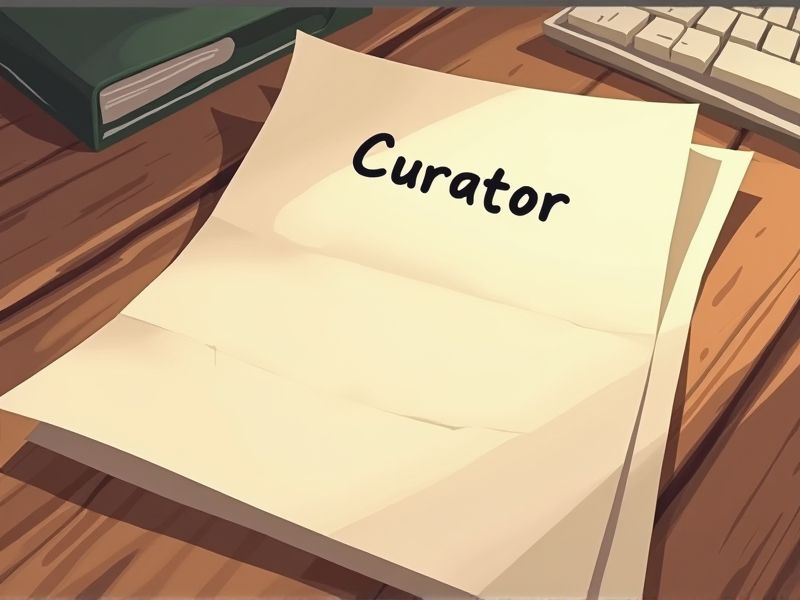
Curators play a pivotal role in preserving and interpreting cultural artifacts, balancing both historical significance and contemporary relevance. Certification provides curators with necessary knowledge in conservation techniques, display methodologies, and archival standards, ensuring the protection and integrity of collections. These credentials not only enhance a curator's expertise but also bolster institutional credibility and public trust. Here are some essential certifications that might be necessary for a curator.
Museum Studies Certification
A Museum Studies Certification provides curators with specialized knowledge in collection management and preservation techniques, which ensures that museum artifacts are maintained in optimal condition. The certification equips curators with skills in exhibition design, enhancing their ability to create educational and engaging displays for the public. It also offers training in ethical considerations, vital for dealing with issues like repatriation and looted artifacts. With this certification, curators gain an understanding of museum administration, allowing them to effectively contribute to organizational strategy and development.
Curatorial Practices Certification
Gaining a Curatorial Practices Certification ensures that curators possess a comprehensive understanding of art history, conservation techniques, and exhibition planning, which enhances their capability to manage collections effectively. The certification process typically includes hands-on experience and theoretical knowledge that are critical for curators in making informed decisions about acquisitions and displays. It often acts as a formal acknowledgment of skills and competencies, which can be pivotal for career advancement in competitive institutions. In many cases, museums and galleries prefer certified curators as it reflects a commitment to industry standards and continuous professional development.
Collections Management Certification
Collections Management Certification enhances a curator's expertise in cataloging and preserving artifacts, ensuring they maintain high standards in their work. The certification provides curators with updated knowledge of legal and ethical issues, reducing the risk of non-compliance in managing collections. Training through certification fosters improved resource management, facilitating efficient allocation of museum resources. Certified curators tend to attract more funding and support as they demonstrate credibility and professional commitment to stakeholders and audiences.
Conservation Techniques Certification
Curators face the challenge of preserving invaluable artifacts, and without proper conservation techniques, these items risk degradation. Certification ensures curators are equipped with the latest preservation methods, which maintain cultural heritage integrity. Institutions benefit from certified curators as they uphold standards that can prevent costly restoration efforts. Public trust in museum collections grows when they know certified professionals care for these artifacts, safeguarding history for future generations.
Exhibition Design Certification
Exhibition design certification equips curators with a comprehensive understanding of spatial dynamics and visitor engagement, enhancing their ability to create compelling exhibitions. Without this training, curators may lack essential skills to effectively communicate thematic narratives and interpretive strategies. Certification often includes current industry standards and technological advancements, ensuring curated displays meet modern audience expectations. Expertise gained through formal certification can lead to increased credibility and career advancement opportunities for curators.
Digital Archives Certification
Digital archives certification equips curators with the skills needed to manage and preserve digital collections effectively. With increased reliance on digital formats, curators must ensure that data remains accessible and authentic over time. Certification provides standardized knowledge and tools to tackle challenges like data degradation and format obsolescence. Institutions gain trust and credibility when their curators hold recognized certifications, reflecting commitment to digital stewardship excellence.
Museum Education Certification
Museum Education Certification equips curators with advanced skills in engaging diverse audiences, which enhances visitor satisfaction and educational outcomes. Many museums seek professionals who can integrate educational strategies to foster community involvement, and certification signifies expertise in this area. Employers often prefer certified individuals as they demonstrate a commitment to ongoing learning and mastery of current educational practices. Certification also creates networking opportunities by connecting curators with pioneering educators and resources, thus enriching their professional development.
Cultural Heritage Management Certification
Certification in cultural heritage management equips curators with specialized knowledge necessary for preserving and interpreting historically significant artifacts, strengthening their expertise. Increased awareness and sensitivity toward diverse cultural narratives often result from formal training, fostering inclusive representation in museum displays. Regulations and ethical considerations governing artifact conservation and exhibition increasingly require curators to possess verifiable credentials, ensuring compliance. Certification often correlates with professional credibility and career advancement opportunities within museums and cultural institutions.
Museum Leadership Certification
Museum Leadership Certification provides curators with the necessary skills to manage complex institutional dynamics effectively. As curators advance, they often assume roles that require expertise in leadership, strategic planning, and stakeholder engagement. Certification ensures they possess a comprehensive understanding of industry standards and ethical considerations. Enhanced leadership capabilities can lead to improved museum operations and enriched visitor experiences.
Art History Certification
Understanding art history provides curators with the necessary context to interpret and display artworks meaningfully. This certification equips them with knowledge about different art movements, styles, and cultural influences, which are crucial for curating exhibitions that resonate with audiences. It sharpens their analytical skills, enabling them to provide expert insights and historical connections within collections. Having a formal certification enhances their credibility and professional standing in the art community.
Summary
When you obtain certifications as a Curator, your expertise becomes more validated, leading to increased trust from stakeholders. Hiring tendencies shift as organizations prefer certified professionals, enhancing your job prospects. Projects witness improved execution quality owing to your enhanced skills and knowledge. Consequently, your career growth accelerates, resulting in higher earning potential and professional recognition.
